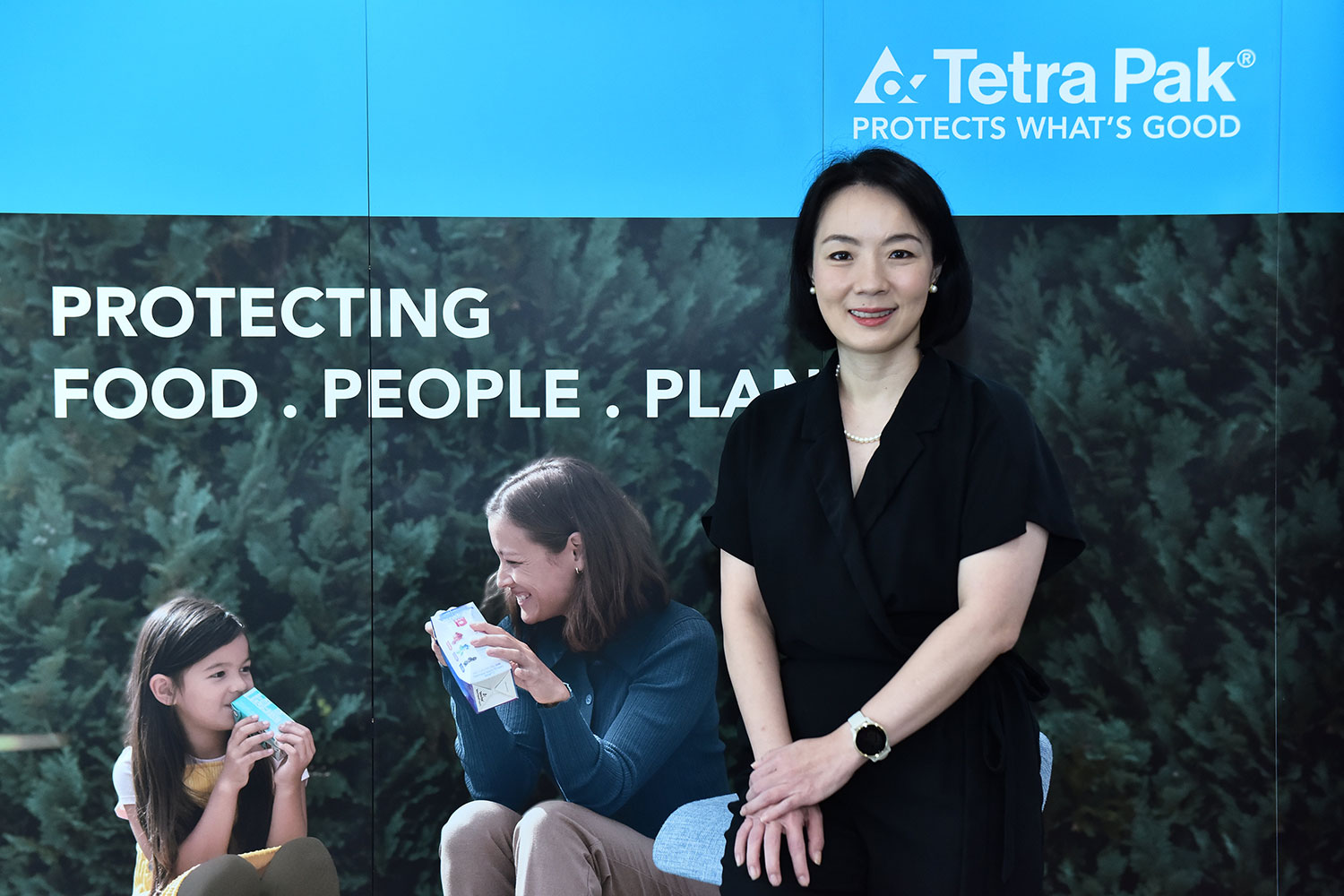
By Ratanasiri Tilokskulchai, Managing Director, Tetra Pak (Thailand) Limited
On Wednesday, September 28 we celebrated the World School Milk Day. Many countries – regardless of whether they are large or small, rich or poor – held World School Milk Day, demonstrating that the interest in school milk is universal. Big or small, all have a common goal: to draw attention to school milk and thereby promote its consumption. Thailand has all the reasons to participate in this celebration — we have our own success story of the school milk programme, which was first introduced here in 1992. Tetra Pak has been actively involved in the programme, and we are proud to do our part by using food processing and packaging technologies to provide safe and nutritious milk for Thai children throughout the year.

At Tetra Pak we believe that science, technology and innovation are essential contributors to a global food system that is safe, nutritious, equitable, sustainable and resilient. Our company vision – “We commit to making food safe and available, everywhere” – is an aspirational goal that drives our organisation. By working closely with our customers and suppliers, we seek to provide safe, innovative, and environmentally sound products that meet the daily needs of hundreds of millions of people. We want to use our expertise, knowledge, processing technologies and packaging solutions to help increase access to safe and nutritious food that is good for people and the planet. This is why for 70 years, we have supported our customers and collaborated with governments, NGOs, UN Agencies and other development organisations, in the development with partners to support School Feeding Programmes.
The first school milk programme was created back in 1929 in Mexico and it continues to be one of the longest running feeding programmes in the world today. As the programme grew in coverage throughout the country, safe distribution of milk was challenged by various logistical and infrastructure factors, especially in remote areas where a viable cold chain did not exist. As a practical solution to overcome these distribution and food safety challenges, Tetra Classic® Aseptic 250ml. packages were introduced in 1962, marking the first school milk programme where Tetra Pak packages were used.

The solution proved to be so effective, that today more than 68 million children in 56 countries now receive milk or other fortified beverages in Tetra Pak packages in their schools. Through our global experiences, we have seen how effective sustainable school feeding programmes can be in improving nutrition and education for vulnerable groups. Research studies demonstrated the positive impact of fortified milk consumed by children. During a 12-month period, the presence of anaemia decreased by 21.6%, while iron deficiency decreased by 3.2%. Median iron and zinc intake also increased by 0.96mg and 0.3mg per day, respectively.
Malnutrition among children is an important issue — in 2019, 144 million children under-five were stunted, 38 million were overweight, and at least 340 million suffered from micronutrient deficiencies. According to the World Food Programme (WFP), school feeding is the largest and most widespread social safety net in the world, benefitting one in two school children, or 388 million children globally in 163 countries.

School Feeding Programmes are critical for achieving learning outcomes and improving the nutritional status of children, particularly girls and the most vulnerable. They can increase school enrolment rates, reduce absenteeism, and improve food security at the household level. Prior to the Covid-19 pandemic, some 73 million vulnerable children were missing out on meals. This number has dramatically increased following the restrictions imposed by Covid-19, which left 370 million children deprived of what for many was the only nutritious meal of the day. To enable expansion and sustainability of School Feeding Programmes, there are four challenges that need to be overcome: sustainable funding mechanisms, education about the nutrition benefits of foods provided (e.g., Dairy), need for local production and sourcing of safe, nutritious, high-quality foods and development of solid data collection and impact evaluation mechanisms.
But wherever there is a challenge, there is also an opportunity. The food processing and packaging industry can support the scaling-up of school feeding programmes. By collaborating across stakeholders and innovating on solutions and finance, we can provide cost-effective packaging solutions, food processing technologies, and logistical support tailored to the local context.
Tetra Pak has gained a lot of experience in this domain over the last decades and is committed to sharing good practices used in School Feeding Programmes worldwide and expanding collaborations with all relevant stakeholders as well as technical assistance where relevant. Collective programming approaches with comprehensive monitoring and evaluation frameworks are key to demonstrating the role School Feeding Programmes have played in improving health, education and local development around the world.
To celebrate and explore the multiple benefits that the Schools Feeding Programmes bring to children and communities worldwide, read the in-depth story at our website.